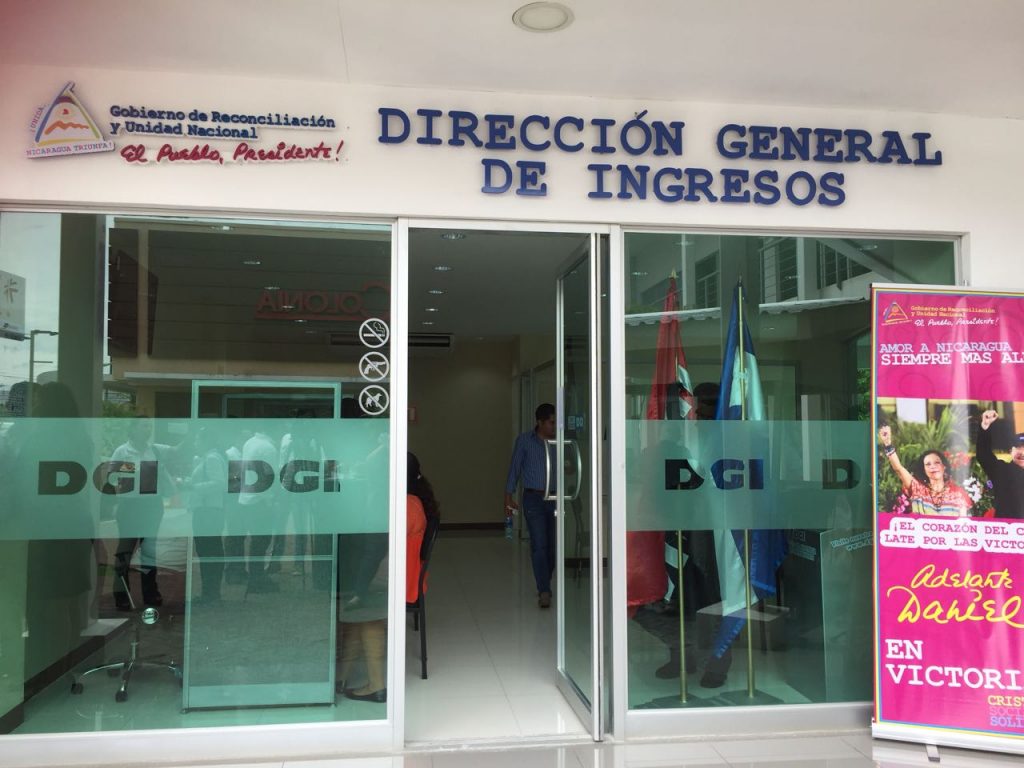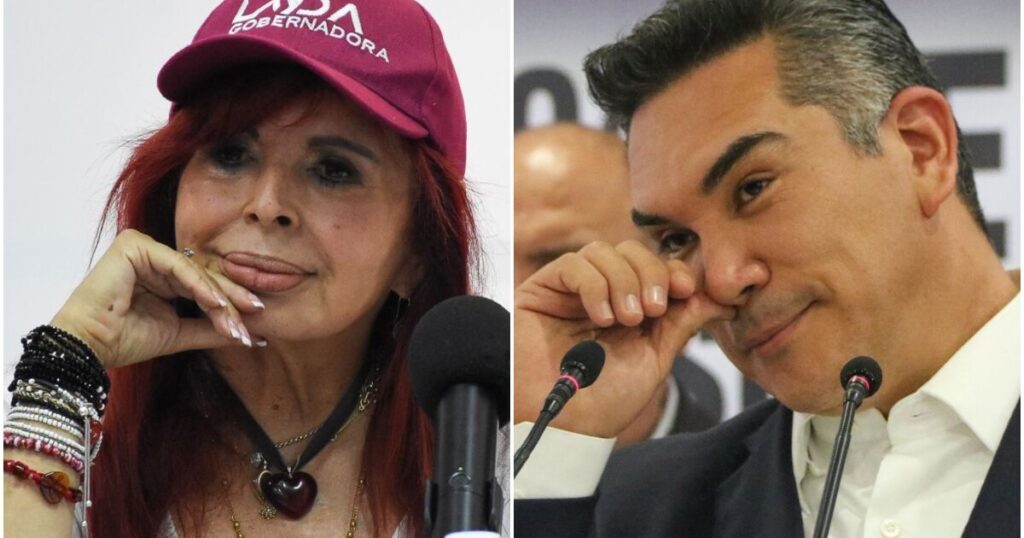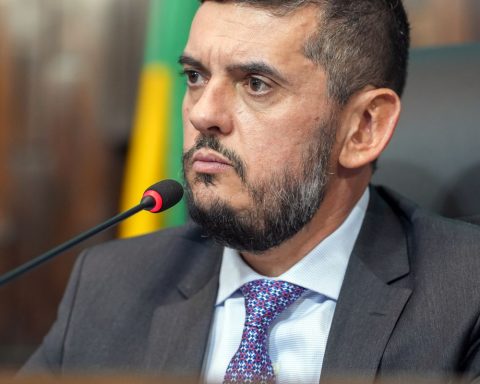The Government of Nicaragua collected more than 125.6 billion córdobas (equivalent to more than 3.5 billion dollars) between January 2021 and March 2022, and expects to maintain high growth rates in tax collection for the rest of the year, applying the that an expert on macroeconomic issues, who spoke with CONFIDENTIALhe called “excessive pressure on companies”.
From the beginning, the private sector said that the tax reform of March 2019approved by the Sandinista Front steamroller in the National Assembly, would have only one winner: the Government. The numbers and the times proved him right. Now, what is the result for the companies is being debated, which especially criticize being subjected to an environment of permanent harassment, which makes doubt the viability of operating in Nicaragua.
“Yes, there is pressure against companies, and yes, there are abuses,” said a business consultant who also requested anonymity. “I know the case of a businessman who left Nicaragua for the best,” he added, tired of trying to survive in this rarefied environment that has been forged in the country.
“For a State to seek how to make the business community pay what they have to pay by law is correct, because we know that the levels of tax evasion and avoidance have been high in our countries,” said Roberto Rubio-Fabian, director executive of the Salvadoran National Foundation for Development, (Funde).
However, he explained that “pressure is different from harassment: pressure is that the law is followed, and that the evader does not run long. ‘Harassment’ is the use of instruments to control the employer, and take advantage of even a small accounting error to use it against him”.
In the latter case, the legal and tax framework is activated as “a mechanism of political control. Authoritarian governments, where there are no defense mechanisms, use them as tools to subdue the business sector”, he added.
Bend the law to charge more
A businessman whose commercial activity is linked to the real estate sector, complains about the many ways that the treasury and the mayors use to charge moreand get more money by taxing business activities.
The first one you mentioned is a de facto process of property revaluation, recalling a specific case, in which the authority increased the price of real estate at will, passing its value from $7,000 to a little over $50,000. from one year to the next, which doubled the amount to be taxed.
The result was that the payment of the real estate tax (IBI) increased, as well as the transfer tax, which is levied at 1% on properties of up to 50,000 dollars, and increases to 7% for those that exceed the $500,000. “If you sell a house for $50,000, you should pay 1%, but they double or triple it, at their free will, without using technical criteria, and nothing can be done, because you never win an appeal, and there are even risk of raising the collection”, said the businessman.
His experience tells him that ‘tax voracity’ has to do with who the seller is, (who is responsible for paying that tax, as an ‘occasional profit’): if that person was involved in any activity in support of the civic protest , the collector’s attitude will be more voracious and ruthless.
In the end, “this affects the business because it creates uncertainty. People anticipate that they will pay so much, but they no longer know if it is worth selling at that price, because they do not know if they will only have to pay what is provided by law. I know of someone who sold a property for $30,000, but had to pay $50,000 in taxes,” he said.
Although some sellers ask the buyer to pay the tax, none accept it, explained the businessman, explaining that in the long run, this also affects the real estate market, because the stoppage of many transactions affects the price of the properties.
He acknowledged that at present “the unions are not dealing with these issues, because they prefer to continue maintaining lowest profile possible”.
This businessman explained that “the activity is so depressed, after going through crises after crises, that there is not even a chance to hit our companies.”
Money… in your pocket, or in mine
The more than 125,634 million córdobas collected in the fifteen months between January 2021 and March 2022, represent an increase of 8.75% compared to the 114,644 million scheduled at the beginning of both periods, and 20.4%, if It compares it with the 99,993 million raised in all of 2020, plus the first quarter of 2021.
“All this pressure is done to seek resources to save the Institute Nicaraguan Social Security (INSS), but they are also looking for ways to collect at all costs, to cover financial gaps and accumulate resources on a forecast basis, because the country’s economic prospects are tense”, said the initially quoted economist.
When asked to explain the effects of this attitude of looting of companies and the economy, explained that this “puts pressure” on the availability of resources so that companies can carry out fundamental operations and adjustments in the activities necessary to survive and compete in the market. “The fiscal pressure exceeded, be it administrative, municipal, Social Security, etc. it reduces the investment capacity of companies, and that of improving wages and benefits for workers”, he indicated.
This expert observes that “this is a situation that could lead to the slow death of many companies, and facilitate the emergence of monopolies or cartels, which would take advantage of the spaces, because conditions are created so that the corruption of public sector officials favors companies or actors related to the Government”.
“I know businessmen who have been imposed millionaire fines, an opportunity that some official took advantage of to tell him ‘I’ll lower it if you give me that much’. Those businessmen had no choice but to pay the bribe, because paying the entire fine could bankrupt them,” explained the consultant.
Bribes, privileges and power
“An environment of uncertainty discourages investment, more so if you are a foreigner, because you see that it is not efficiency that prevails, but rather proximity to power, and that goes against companies that have codes of conduct, while businessmen who are inside, They see that there are no guarantees that they will be able to compete with equal opportunities,” added Salvadoran Roberto Rubio.
Reiterating that “unpredictability discourages investment,” the Salvadoran assured that “for this reason, our investments [las que recibe Nicaragua, o las que recibe El Salvador] they are lower than those of Costa Rica, for example, which offers greater predictability”.
Nicaraguan businessmen know what it is to compete at a disadvantage. Much more, after they lost privileged access to the highest levels of power.
In this regard, the executive director of Funde, points out that “in Nicaragua, there was a lot of complacency on the part of the business communitywho saw that being close to power has its advantages, and when Ortega took off his mask –because he no longer needed the support they gave him– he pushed them away and a fear scheme that includes prisonwhich is a good lesson for entrepreneurs in El Salvador”.
In 2018, the Administration of Daniel Ortega decided to unify the databases, both the fiscal one, with that of the mayors’ offices, and the Registry of Persons, etc., to cross-reference the information, in a way that allows them to identify –and cut– everything they interpret as tax evasion.
The problem, says the consultant, is that “they are doing it in an extremely strict way, so they are over the whole world, which would not be objectionable, if it were a correct government, but it happens that there are people who take advantage of that information, and that’s where the problem arises. The problem is not complying with the law, even if it is confiscatory, because the sums that are paid as taxes are very large”.
The director points out that one result of this integration of the databases was “the real expansion of the tax base.” Four years later, the Government continues to find taxpayers where it was not able to find them before. “We do not know if this change is a sign of efficiency, or a strategy that allows them a certain margin to please some business sectors,” the manager speculated.
He doubts, because he observes the “extreme preferences”, offered by the tax administration, especially “when it charges one company, but not another, which creates competition in unequal conditions, and that is what the private sector complains about , seeing how tax preferences prevail for some entrepreneurs, which gives them a lot of advantage”.
“There is no equality in the collection of taxes, and although the tax base has been expanded, political differences have an impact in deciding who to charge and who not to. Who do you charge more, and who less, ”she concluded.

















